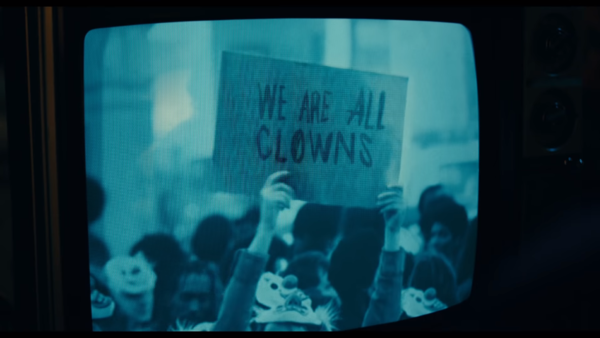Joker (2019): 8 Major Problems No One Wants To Admit
1. Joker Stands For Nothing... But Then Also Does?

When Arthur appears on the Murray Franklin show he proudly declares that he's not "political". Yes, he was responsible for the murders that kickstarted Gotham's revolution, but - in true Joker fashion - he doesn't really care. He finds comedy in the widespread adoption of clown masks and circus-wear after being reviled for doing so in his previous profession, but it's worth reiterating that he still comes onto Franklin's show with a point to prove.
Because this Joker doesn't understand comedy, but still craves an audience. Is his posturing on the subjectivity of comedy a genuinely held belief? You'd imagine so, given the emotion with which he defends his own position, and that's what makes the final scenes so appalling.
Arthur Fleck is not a good man. In fact he's pretty despicable, but that final act reveres the character like he's a hero fighting against the ostensible sanitisation of comedy and the injustices of Gotham's elite. The two don't really go hand in hand, but it's enough for the city to lionise Fleck for his onscreen murders - at least as long as we assume the final exchange in the asylum doesn't throw any of that in doubt.
What exactly is Joker trying to say here? That Gotham and him are one and the same? Or that no one's really better than anyone else? For all that Gotham's 'clowns' reviled Thomas Wayne for abusing the city, they turn to Joker as a messiah as the city burns. And while that's certainly an interesting prelude to a new interpretation of Batman's source material, in our real life, present day context? It's just depressingly cynical.
Joker is a mess of contradictions, and while that may typify the Clown Prince's comic book history, it's no excuse for the film's shortcomings.
How Well Do You Know The Joker In Movies?
